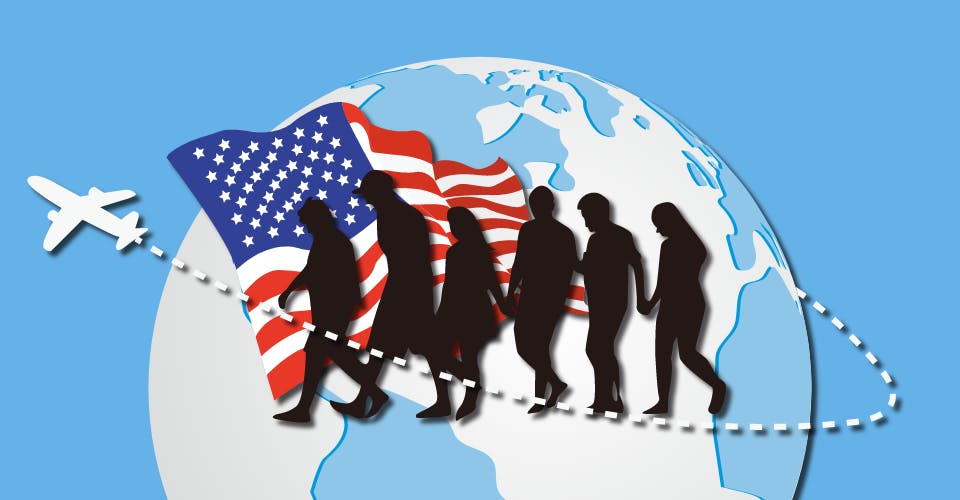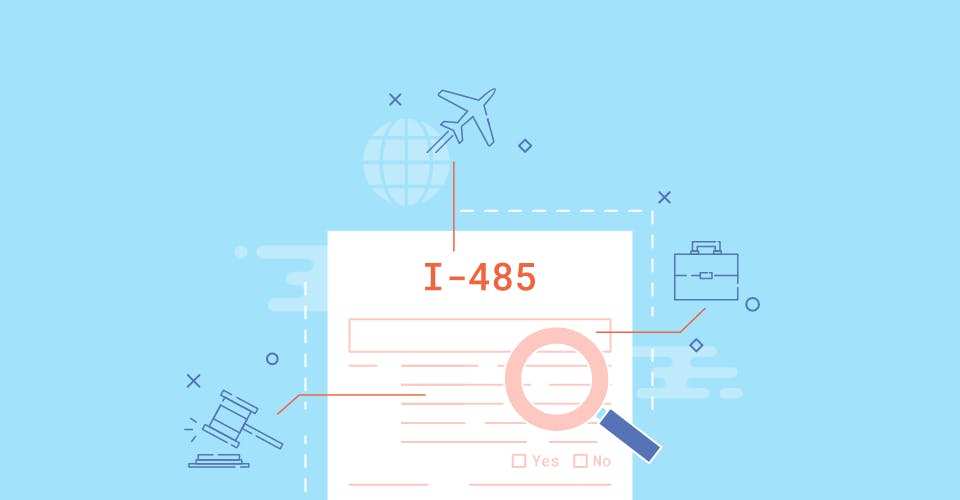One of the possibilities for having your green card application accepted by the USCIS is having the appropriate Affidavit of Support from a U.S. Citizen. In fact, being married to a U.S. citizen has long made the process of applying for a green card more manageable. Your spouse is able to fill out and sign the waiver of support, and they are also able to be present during the marriage green card interview to testify that the immigrant spouse in question has the best interests for becoming a green card holder and working in the United States.
In a similar vein, filing your I-485 as an immediate family member is another path to receiving a green card. You may in fact file your I-485 application as the brother or sister (sibling) of a U.S. citizen or as the parents of a U.S. sibling. This helps the USCIS understand that the relationship between blood relatives is legitimate and that the U.S. citizen in question is not just trying to bring in as many family members as possible.
What is currently not a supported practice in the process of both U.S. citizenship and also applying for a green card is sponsoring distant relatives, which are defined as aunts, uncles, and grandparents. Often these individuals will not qualify for a green card unless they too have someone who is much closer in their immediate family who is a U.S. citizen. There needs to be a legitimate connection, as mentioned so that immigration officials can get a better understanding of why such an individual is immigrating in the first place.
One of the problems that immigrant family members often run into is that someone who becomes a lawful permanent resident (LPR) through the green card process wants to sponsor other family members to start the I-485 and petition process as well. However, this is not actually legal. According to the USCIS and federal law, in order to file an Immigrant Petition for your brother or sister, you must be a U.S. citizen and at least 21 years of age. If you are a Lawful Permanent Resident, you are not eligible to sponsor your brothers or sisters for green card status. It should be noted that the difference between LPR status and U.S. citizenship is the difference between living in the United States for at least 3 to 5 years longer.
Why does it take longer to sponsor relatives from certain countries?
In terms of sponsoring relatives, the wait times vary depending on ones country of origin. While each nation gets the same percentage of immigrant visas from a pool of family and employer-based visas that are available each year, the demand is much different because there are some immigrant diasporas that are much higher in the United States than others, comparatively.
Predictably, the highest demand for family-sponsored visas comes from countries like Mexico, the Philippines, China, and India. This translates into large numbers of people waiting for a relatively small number of visas — and thus the long waits.
Preferences for Family Members
In addition, the USCIS takes preference for certain family members when it comes to approving visa petitions for family members. Here is the preference list:
- 1st Preference: Unmarried, adult sons, and daughters of U.S. citizens. Adult means at least 21 years old
- 2nd Preference: Married sons and daughters of U.S. citizens.
- 3rd Preference: Brothers and sisters of adult U.S. citizens.
Although there are many finite rules to the immigration process and for even starting one's I-485 process, it is important to be aware of the technicalities. In recent years there have been moves by the current administration that would allow immigrants to only be able to sponsor their spouses and minor children. The switch to a merit-based system would favor the highly educated and skilled versus immediate family members. The upcoming election in November could promise less crackdown if Democrats are able to take control of at least the Senate or Oval Office.














